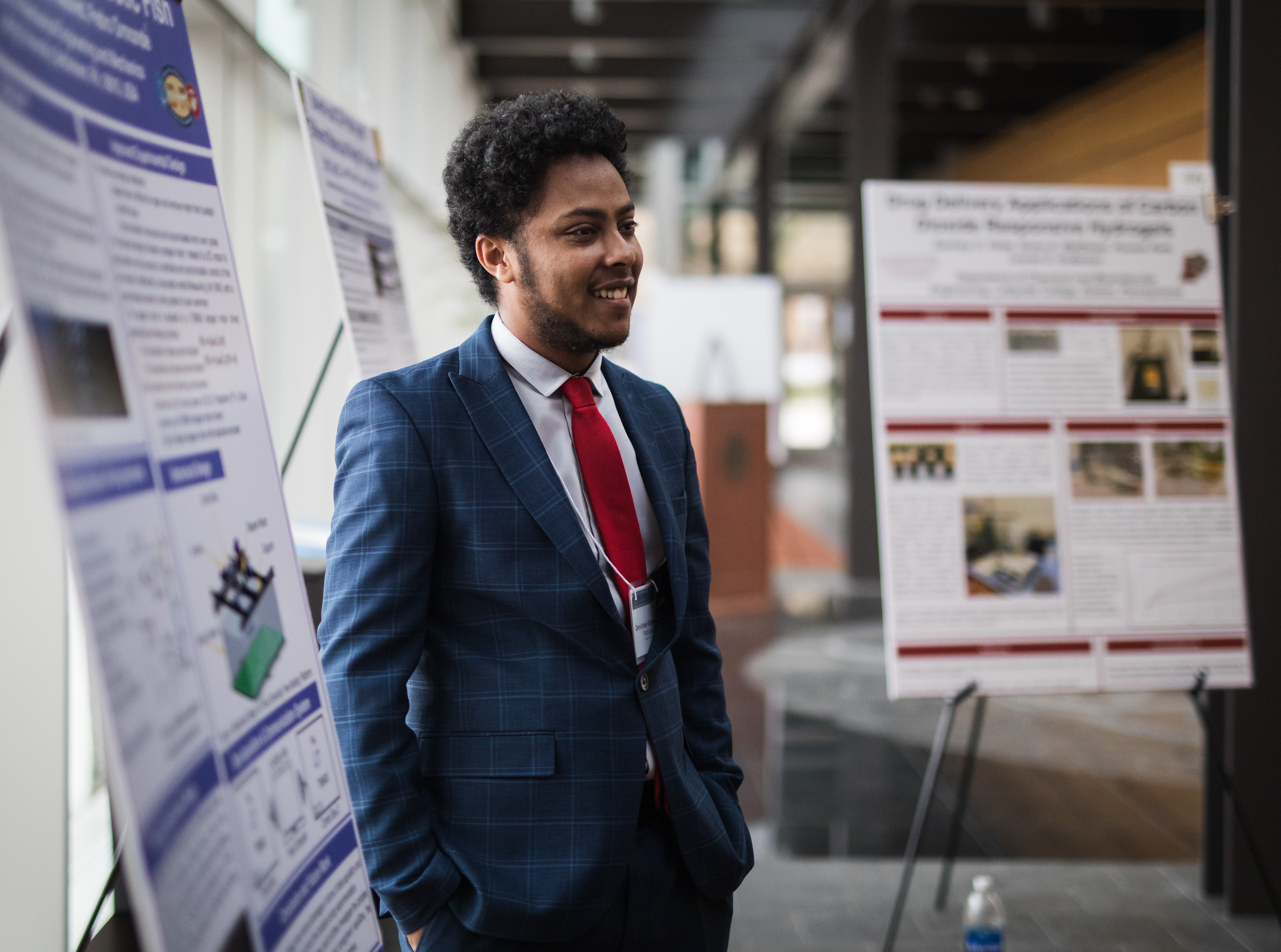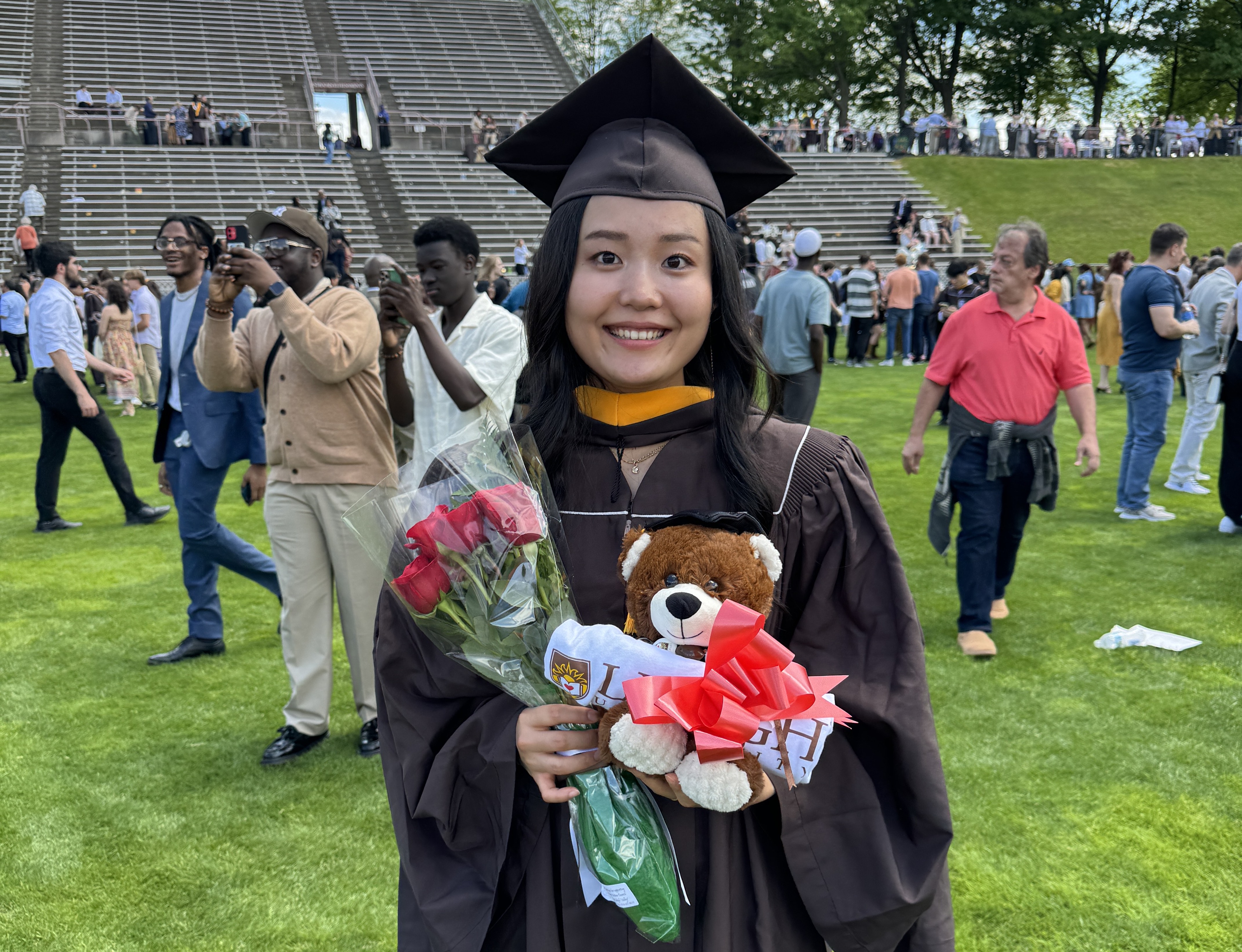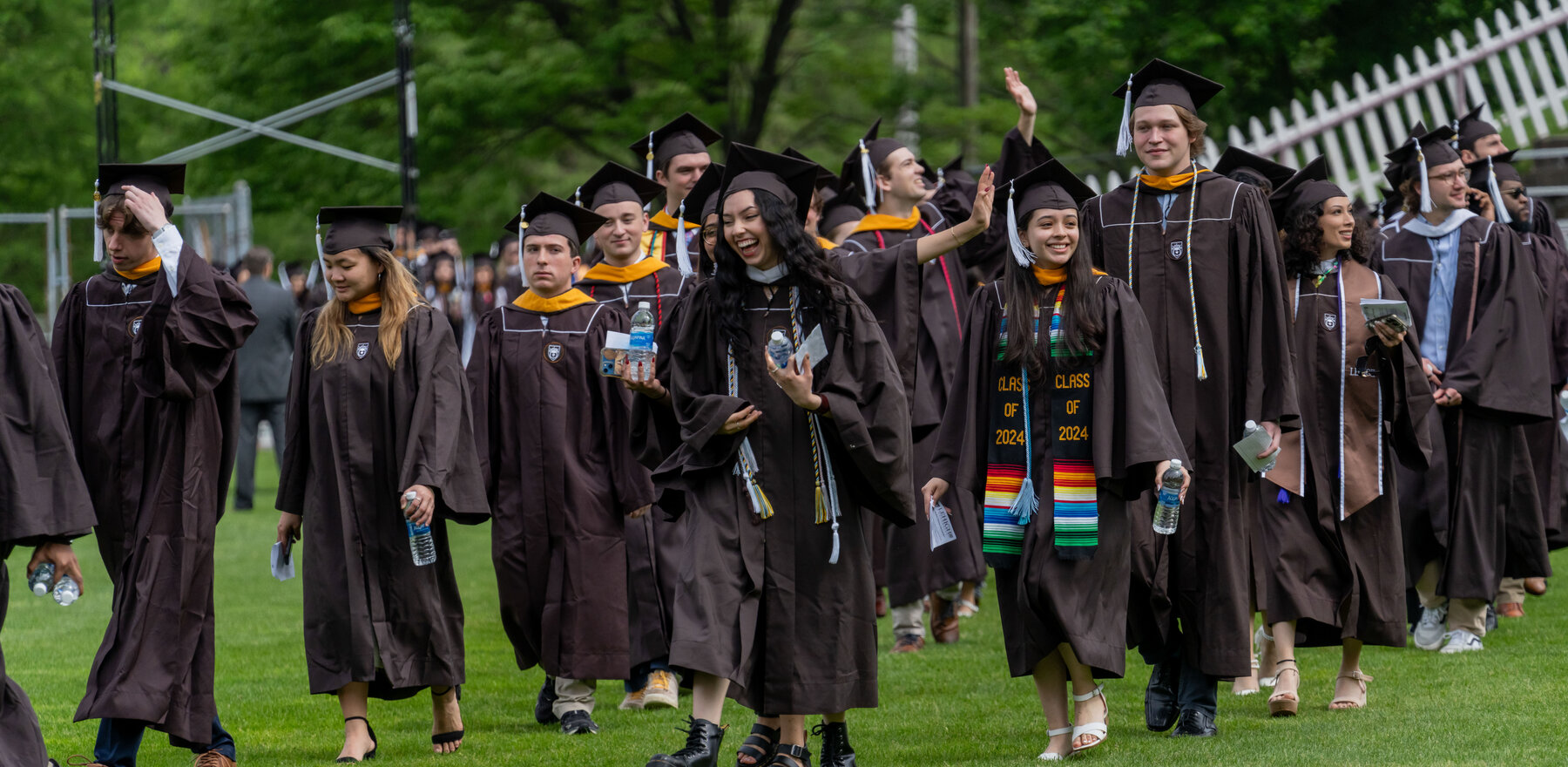International students at Lehigh University displayed remarkable resilience during the COVID-19 pandemic, adapting to remote learning from countries around the world and successfully completing their degrees despite unprecedented global challenges.
When Zemichael Gebeyehu ‘24 began his educational journey at Lehigh University in 2020, he faced an unexpected challenge: taking classes remotely from Ethiopia due to the COVID-19 pandemic. Just days before his online courses started, a nationwide Internet blackout was imposed, leaving him unable to access the classes or even notify the university.
“Lehigh was sending me reminders about classes I was supposed to be taking, but I didn’t have any email access to communicate with them,” Gebeyehu said. “Fortunately, they quickly understood the situation and provided options to help me make up the work I missed.”

Gebeyehu, 24, graduated with a mechanical engineering degree in May, becoming one of several international students at Lehigh who began their courses remotely due to COVID-19, but transitioned back to classes on campus and obtained their degrees during an in-person graduation ceremony.
Gebeyehu’s story was just one of many international students' experiences during the pandemic. Lehigh’s Office of International Affairs (OIA) and the Office of International Students and Scholars (OISS) quickly adapted to the global disruption, creating new programs and adjusting existing ones to support remote students around the world.
The lessons learned during this unprecedented time continue to influence how the university prepares for future disruptions, fosters global connections, and provides flexible learning opportunities. These experiences underscore the importance of resilience, communication, and innovation in delivering a world-class education, regardless of circumstances.
The pandemic tested our ability to adapt, but it also strengthened our commitment to providing a global education, regardless of the circumstances," said Cheryl Matherly, Vice President and Vice Provost for International Affairs at Lehigh. "Our international students showed remarkable resilience, and the programs we developed during this time have only enhanced our capacity to support their success in the future.”
Lehigh in Residence program
One of OIA’s early initiatives during the pandemic was the Lehigh in Residence (LIR), a first-year program for international students in Shanghai to attend Lehigh courses remotely during travel restrictions. LIR was created in collaboration with IES Abroad, one of Lehigh’s longtime study abroad partner organizations.
A total of 65 students – roughly half the first-year international class that year – participated in LIR. OIA worked with the advisors in each college to put together a list of courses to ensure that students would meet their first-year requirements.
“It was a massive undertaking to create a first semester of Lehigh courses in China with only about six weeks to plan, in the middle of a global emergency,” Matherly said. “The fact that it came together so quickly and successfully is a testament to everyone involved, as well as to Lehigh’s commitment to access and international education.”
Ariel Huang ‘23, who graduated with a marketing degree in December 2023, began her education at Lehigh through the LIR program, taking remote courses from home as well as at a university in Shanghai. She said it could be challenging because of the time difference.
“The professors were all very kind and accommodating,” Huang said. “I know of one professor who decided to wake up at 6 a.m. their time just to help us get a normal schedule so we could take classes in the daytime in China, which I think was incredibly considerate.”
Akari Takahashi ‘24, who majored in biology, also took her freshman courses remotely from Tokyo. She had to set up her own biology lab equipment for a freshman class, which added to the stress of remote learning. Still, she remained determined to complete her courses and achieve her goals.
“I felt overwhelmed, but I also felt like it was something I just had to get through to pursue what I want to do,” Takahashi said. “The faculty and others from Lehigh were very friendly and did as much as possible to make me comfortable and support me during that time.”
Programs with lasting impact

OIA and OISS oversaw efforts in student advising and partnerships during the pandemic, including programs for student wellness and virtual activities. These programs have had a lasting impact on current practices and ongoing partnerships, including cross-training staff for better support of international students.
Morgan Volkart ‘06 ‘10G, Associate Vice Provost, Western Region and International Recruitment at Lehigh, said these programs allowed students to feel a sense of a Lehigh community from a distance, rather than simply taking online courses in isolation.
“During a time when many universities were losing incoming and current students to in-country universities or gap years, I believe that our partnering with institutions globally really helped us to create a unique path for incoming students to begin their studies as intended as part of a community despite us not being able to welcome them to campus that year,” Volkart said.
One such initiative was the Global Staff Fellows program, a virtual staff development program focused on student advising and wellness. Created by Lehigh and its long-time partner Technische Universität (TU) Dortmund, the program addressed immediate student needs during the pandemic and fostered collaboration that the institutions are discussing re-establishing.
“Lehigh and its global partners came together during an extremely challenging time to understand and respond to the needs of our students,” said Stacy Burger, Director of Global Partnerships and Strategic Initiatives at Lehigh. “That collaboration was critical in ensuring our students felt supported.”
Helping build connections
The International Center for Academic and Professional English (ICAPE) also introduced the Virtual College Success Academy (VCSA), a four-week English course designed to help international students build connections and prepare for online learning
“Programs like VCSA allowed us at ICAPE to develop innovative teaching skills for virtual and hybrid classrooms,” said Mark Ouellette, Director of ICAPE. “This experience prompted us to re-evaluate our standards for teaching, learning, and assessment in the 21st century.”
Takahashi took the online English course “University Life and Language” through VCSA, which helped her learn about university culture, develop her academic communication and study skills, and engage virtually with Lehigh faculty and staff. She credited it with helping ease the transition back to in-person courses on campus.
Both Takahashi and Huang missed their high school graduations due to the COVID-19 pandemic, so being able to graduate in-person at Lehigh this year was particularly meaningful. Gebeyehu’s family from Ethiopia were able to obtain visas to attend his Lehigh graduation ceremony, which was very meaningful to him.
“It was a great experience,” Gebeyehu said. “I’m forever grateful for my Lehigh experience. Despite all the challenges, I was able to have a great university experience, become a professional engineer, and get opportunities to work at various companies. So I’m grateful to Lehigh for that.”
